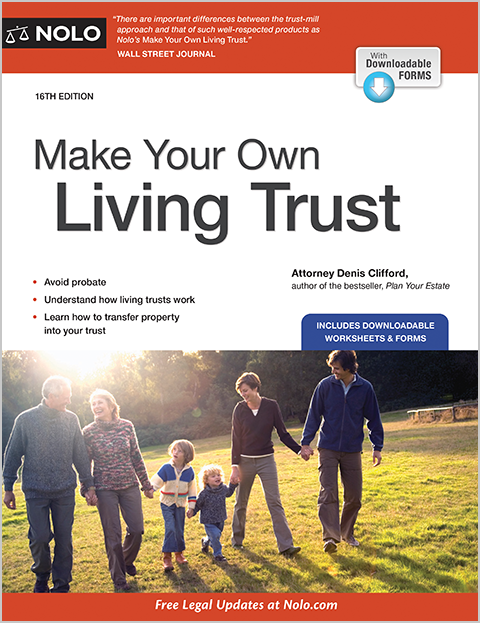Confusion and family conflict can arise over items that are important for emotional, not monetary, reasons.
Estate planning isn't just about money—it's about relationships. Sometimes the biggest sources of confusion, hurt feelings, and family conflict are decisions people make about who inherits items that are important for emotional, not monetary, reasons. So give some thought to family jewelry, photos, antiques, and other items that are likely to have sentimental value to your surviving family members.
Making Gifts Now vs. Using Your Will or Living Trust
You can leave items to inheritors in your will or living trust, or give them away while you are alive. It's up to you. There are a few good reasons for handing out gifts now.
You can find out what people would prefer to inherit. Acting now gives you the opportunity to talk with the people on whom you plan to bestow your gifts and find out what items they care about and which ones they really don't want or need. Surprises may result. You might think your daughter wants the silverware, when she really would much prefer the rocking chair and some souvenirs from family vacations. You can still divvy up your property however you wish—but you'll have more to go on.
You'll get to see the recipients enjoy your gifts. One big advantage to presenting family members or friends with a special gift now is that you get to see them use and enjoy it. And they will appreciate the opportunity to thank you for your generosity.
It may stimulate good discussions. People who receive an item that is important to you may have questions about its history—who owned it originally, why it's significant, and so on. You may be the only one who can fill in the blanks.
You may be able to head off squabbles over particular items. If the way you distribute some items will come as a big surprise to your family, then it's likely to trigger disputes. You can avoid surprises by taking action now, and explaining—if you wish—why you made the decisions you did.
Using a Property Memo With Your Will
You may choose to talk to family members about what they hope to inherit, but still arrange for the actual transfer of property to take place after your death. You can use a will or living trust to leave the items to the people you want to inherit them. The person in charge of winding things up—the executor you name in your will, or the successor trustee if you create a living trust—will be in charge of making sure the objects get to the people you named to inherit them.
If you want to be sure that certain items go to certain people, be very specific in your will. Don't leave a will that simply says, for example, "I leave my personal belongings and household furnishings to be shared equally by my three children." You don't have to cover every item you own—concentrate on the ones that have the greatest value to survivors or are most likely to cause discomfort (because family members will have a hard time deciding how to divvy them up) or conflict (if they'll start fighting over them).
In many states, you can make a separate list of items and who you want to inherit them, and refer to the list in your will. This document is usually called a "property memorandum" or "memorandum of tangible personal property items." In this legally binding document, you can list tangible objects. You cannot list money or other intangible property, such as the right to payments under a promissory note.
The advantage to making this kind of list, instead of spelling out all these details in your will or trust, is that you can change it easily. If you acquire or get rid of an item, or simply change your mind about who you want to leave something to, you can make a new list. You don't have to go through all the formalities of making or amending your will or trust, which requires that you draw up a formal document and sign it in front of witnesses (a will) or a notary public (a trust).
Other Will Provisions to Help Loved Ones Divide Items
Your will (or letter of instructions, discussed below) can include guidance for offspring who will be dividing things up. For example, you could set up a method for resolving any disputes that come up when your children are trying to divide tangible items. There are lots of possibilities, including:
- The children take turns choosing items until each has selected items of approximately equal value.
- The executor decides who gets what.
- If more than one child wants an object, each must bid on it in a private auction conducted by the executor. The winner pays the estate, which means that the money will pass under the terms of the will.
For more suggestions, see the Who Gets Grandma's Yellow Pie Plate? workbook developed by the University of Minnesota Extension Service to help families make good decisions and avoid conflict over inheritance.
A Letter of Instructions Can Offer More Guidance
If you don't want to go into great detail in your will or trust, and your state's law doesn't authorize a personal property memorandum as part of a will, you may want to write an informal letter of instructions or letter to survivors. Your directions won't be legally binding, but they are likely to have a great impact on your family and may well prevent confusion and argument.
You can make your instructions as detailed as you wish. You may also want to include an explanation of any will provisions or instructions that may surprise or disappoint certain family members. For example, if one child will inherit the family's most precious heirloom, you may want to explain how you came to your decision.
Ready to create your will?



